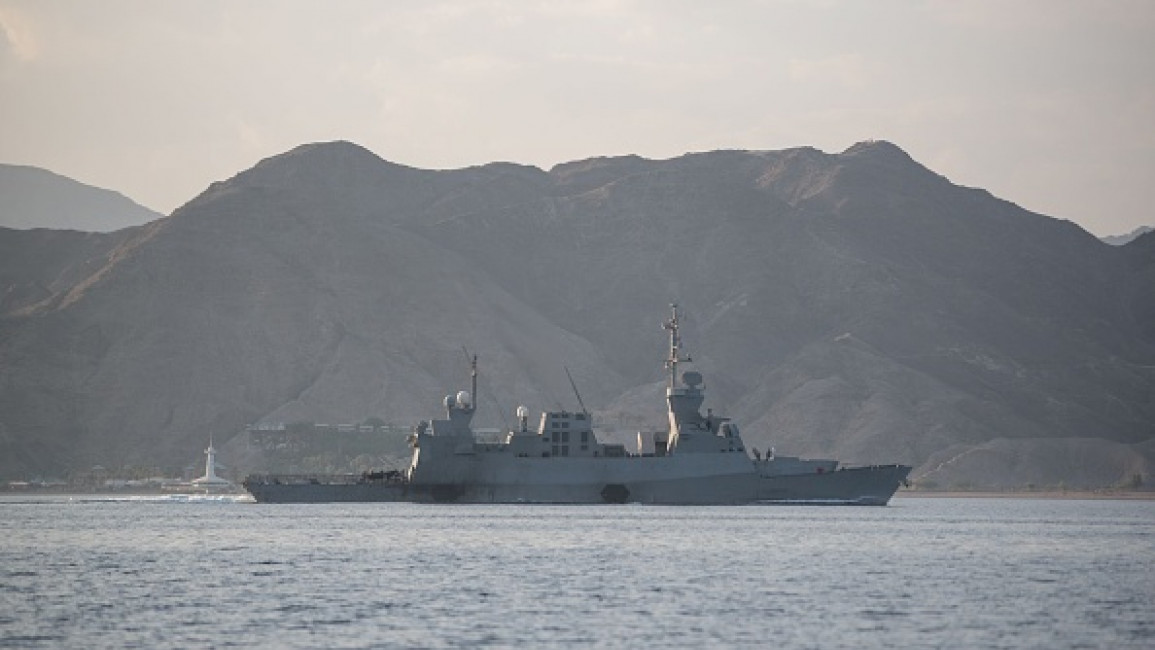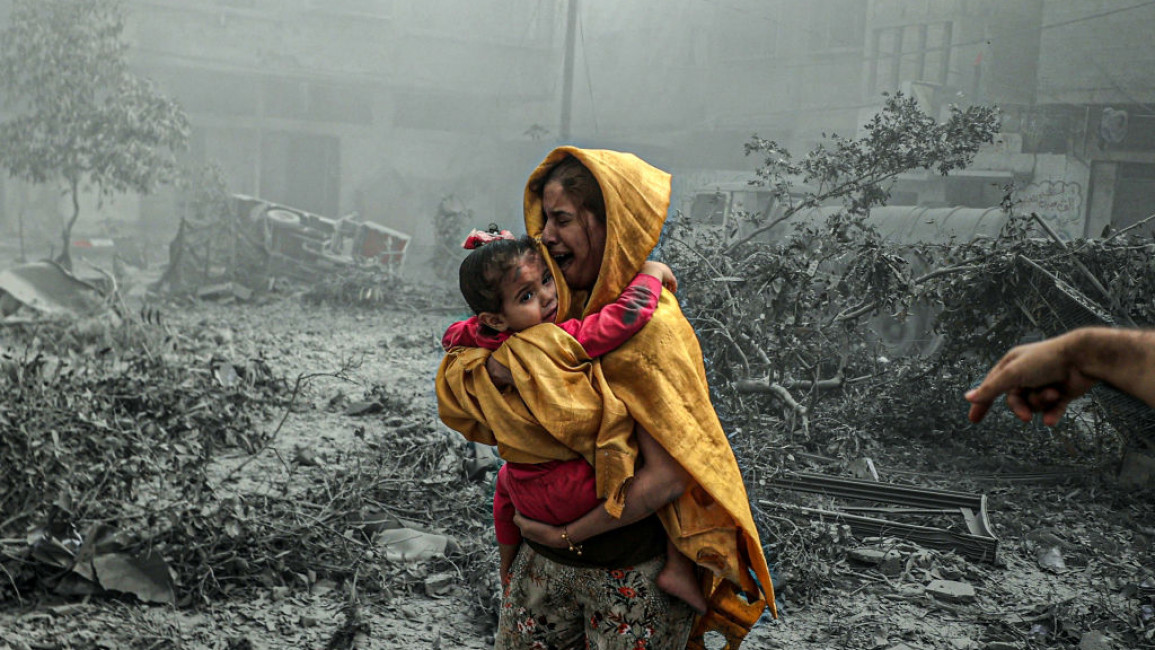
Why Arab states didn't join the US-led Red Sea task force

Before US and UK airstrikes on Yemen’s Houthis last week following attacks by the Iran-backed group on ships in the Red Sea, Washington had announced the creation of a task force to protect maritime trade.
Operation Prosperity Guardian (OPG) was unveiled in December 2023 as a multinational coalition to protect ships in the Red Sea, but it has faced multiple obstacles since then.
While the Pentagon said that over 20 countries had agreed to join the group, a lack of clarity over the operation has created confusion for shipping companies, who have decided instead to re-route their ships away from the maritime passage.
Furthermore, apart from Bahrain, none of the US’ Gulf or Arab allies joined the task force. This is despite the fact that some countries, like Egypt with its large Red Sea coast, have a lot to lose economically from trade disruption.
"The choice of Arab countries not to join [Operation] Prosperity Guardian is a clear message sent to the US, but also to Israel, and in this sense the military dynamic in Gaza has its own weight"
Rerouting commercial ships away from the Red Sea increases transit time by as much as 10 to 14 days, as they must go around South Africa’s Cape of Good Hope to avoid the Bab el-Mandeb Strait, resulting in skyrocketing freight rates and war insurance costs. It is estimated that between 10 to 15% of all global shipping, around 18,000 ships a year, passes through the Red Sea.
Since 19 November, Houthi rebels, officially known as ‘Ansar Allah’ or ‘Supporters of God’, have carried out at least 26 attacks on commercial shipping in the Red Sea according to US Central Command.
Despite obvious security threats and serious disruption of international trade through one of the world’s most prominent shipping routes, the response to the US initiative has been anything but enthusiastic, with many participants preferring to remain anonymous.
Even those who publicly joined the coalition have only contributed a symbolic number of personnel, like Denmark, which has offered only one staff officer despite its giant cargo company Moller-Maersk and many other ships registered in this country having been directly affected.
Moreover, close US partners, such as Italy, France, and Spain, as well as India, decided to send their own ships to protect their national interests - but not under the US command or part of OPG, although they agreed to cooperate.
|
|
Why Arab nations didn't join the US task force
There are several reasons why Arab nations avoided formally joining Operation Prosperity Guardian, but most are related to discomfort with US policy in the Middle East, and, above all, its unconditional support for Israel’s devastating war on Gaza.
The absence of Egypt, which took on the rotating command of the Combined Maritime Forces Task Force 153, under whose auspices the OPG is conducted, has been quite surprising for some observers, as the country is losing millions of dollars daily due to new tensions in the Red Sea.
The Suez Canal is one of the main sources of foreign reserves and income for Egypt and last year revenues reached $9.4 billion. They are now down 40% compared to 2023 after attacks by Yemen's Houthis.
But despite evident revenue losses, Egypt has been cautious in its statements against the Houthis due to the proximity of both conflicts in Gaza and Yemen, calculating that the country has more to lose than to gain in joining the US-led coalition.
Similar security reasons could be applied to Saudi Arabia and the UAE’s absence from OPG, which were the two main powers in the Arab military coalition that began fighting the Houthis in 2015.
“The choice of Arab countries not to join [Operation] Prosperity Guardian is a clear message sent to the US, but also to Israel, and in this sense the military dynamic in Gaza has its own weight,” Giuseppe Dentice, head of the MENA desk at the Italy-based Centre for International Studies, told The New Arab.
“In the first case, Saudi Arabia, UAE, and Egypt aim to avoid direct involvement in a sub-regional dynamic such as the Red Sea, which is crucial for each of these actors for different reasons. Moreover, they have too much to lose and too little to gain from an action that could also hurt them in terms of each national public opinion as well as their security,” he added.
“And this is also a message to Israel, with which they aim in any case to maintain dialogue and relations as it is a key player in several Middle Eastern political, economic, energy and security dynamics.”
"They have too much to lose and too little to gain from an action that could also hurt them in terms of each national public opinion as well as their security"
The Saudis and Emiratis, meanwhile, have been trying to extract themselves from the conflict in Yemen, which has been at a virtual stalemate for quite a while now. Riyadh has been also involved in peace talks and normalised its ties with Tehran, which is seen as a Houthi ally, and therefore any explicit call against the Yemeni group could affect past Saudi diplomatic achievements.
The Houthis have also attacked Saudi territory in the past, with devastating effects on their oil industry, and have warned Riyadh and Abu Dhabi that they would repeat such attacks if they joined the US-led coalition.
Although the UAE has expressed a tougher stance on the Houthis and has supported firm military action against them to reduce the threat to commercial shipping, which also undermines the UAE’s naval ambitions, Abu Dhabi has been also very critical of Washington’s security engagements in the region, which in their view have been insufficient, and this may be one of the core arguments for the UAE’s rejection of the OPG umbrella.
|
|
Why is Bahrain the only Arab state to join?
Bahrain, the smallest Gulf nation, is the only Arab country to join the US coalition. This should not necessarily come as a surprise, however.
Dentice said that considering Bahrain's history, weight, and role in the region, it is clear that Manama has evaluated its participation as an opportunity capable of guaranteeing its security and the support of the US military umbrella should the security of the Gulf region deteriorate.
“Bahraini involvement responds to the usual logic of the Saudi kingdom using the Bahraini monarchy as a sort of Trojan horse to probe dynamics and evaluate options on the ground. We have also seen this in the recent past with the Abrahamic Accords,” he added.
However, there have been significant cleavages between the Bahraini ruling elite and the majority of its citizens when it comes to the issue of normalisation with Israel, as most of the population has never been in favour of the Abraham Accords, and Israel’s brutal attack on Gaza has just amplified these negative sentiments.
"Bahraini involvement responds to the usual logic of the Saudi kingdom using the Bahraini monarchy as a sort of Trojan horse to probe dynamics and evaluate options on the ground"
Consequently, some observers believe that further support for Israel, including the recently assembled US naval coalition, may only complicate the internal situation in the country. A dramatic escalation, however, is unlikely, Dentice told TNA.
“The authorities can more or less adequately control the forces that oppose any international initiative led by the US,” he said. “But the risk can be high and therefore every assessment must be carried out with a certain caution.”
In his view, “Manama still experiences a certain fragility within it and any commitment, even if of an international prospect such as [Operation] Prosperity Guardian, must be adequately explained to the population to avoid incurring possible threats of insecurity.”
Stasa Salacanin is a freelance journalist who has written extensively on Middle Eastern affairs, trade and political relations, Syria and Yemen, and terrorism and defence.




